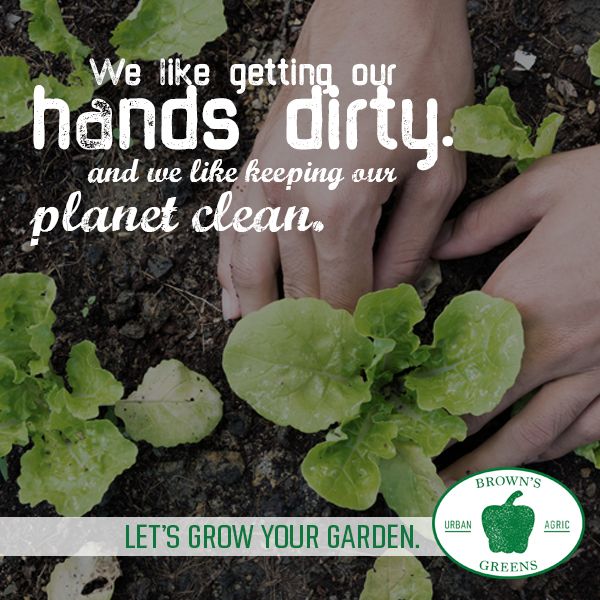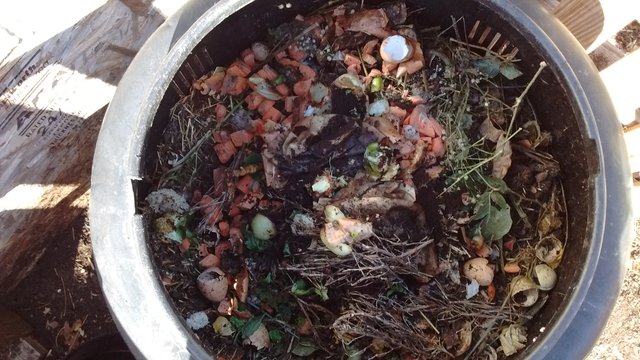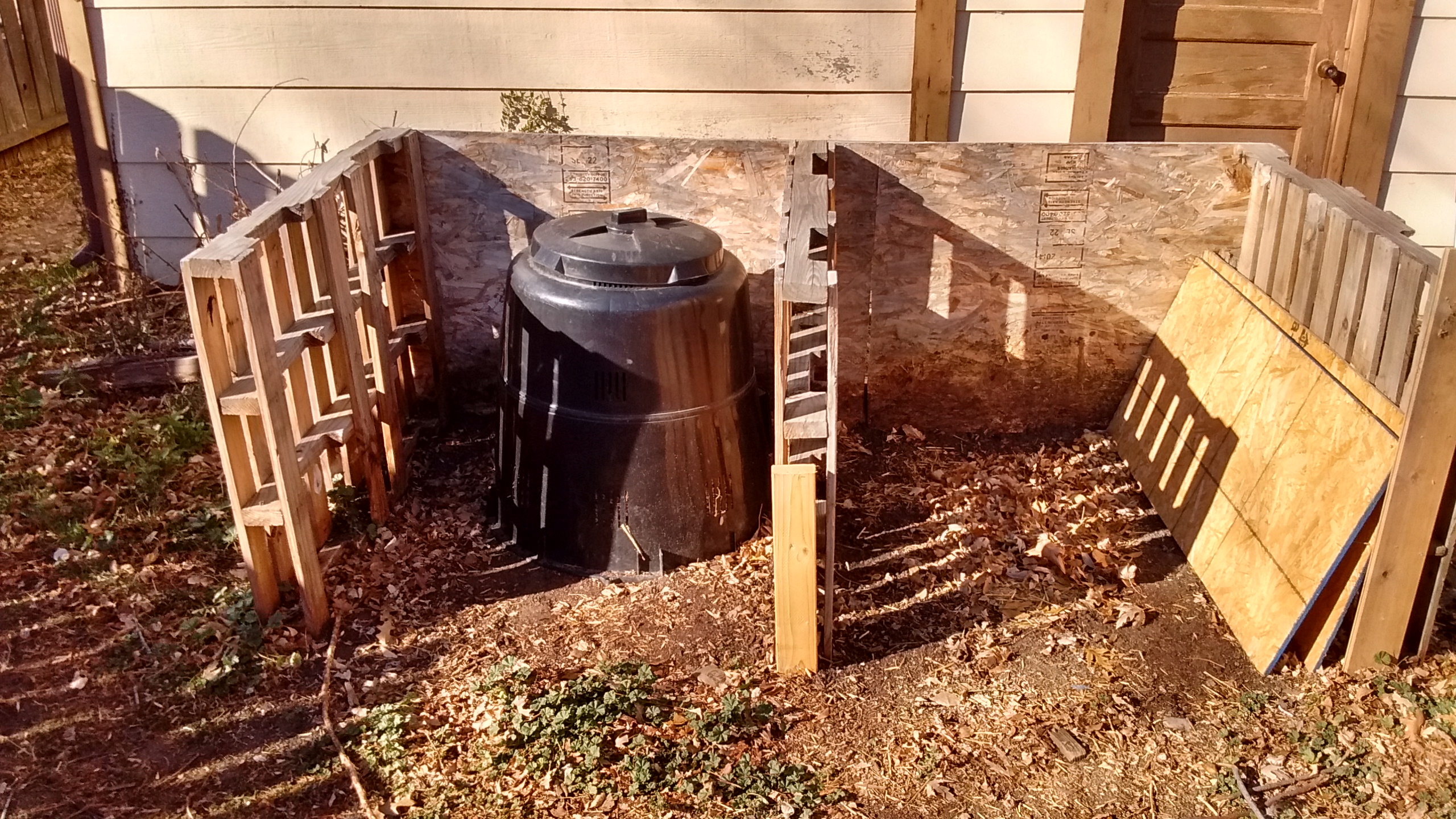So probably most of you reading this are gardeners or homesteaders and you already know your way around compost. But in the off chance that some folks out there just joined Steemit or haven't thought about compost yet, this article is for you! And for all you composters, it could be a good refresh.

First question to answer is, “WHY COMPOST? IT’S SMELLY, UNSANITARY, EXTRA WORK…” For the avid gardener, there endless reasons to compost that I won’t bother listing here. For the non garden enthusiast, there is still a list of reasons to do it. Here’s a couple of them to get you started thinking about it.
- ENVIRONMENTAL RESPONSIBILITY: Not only does composting in your backyard or taking your organic debris to a certified composter decrease the overall volume of trash going into landfills, it decreases the greenhouse gases that are coming out of landfills. When food scraps and yard waste are treated as compost and are properly tended as they break down, they decompose aerobically (with oxygen) through the process of turning the compost time after time, or introducing worms to aerate the compost. If organic material is thrown into a landfill and is not tended as compost, it breaks down anaerobically (without oxygen) because it’s not getting turned and maintained. Anaerobic decomposition produces methane gases, which are harmful to the ozone layer. BAM, everyone participate in composting, please.
- DECREASE SMELLY TRASH: When I started composting my food scraps, I was immediately impressed with the improvement of my trash situation. I filled up my trash can way less often, and it didn’t start to stink after only a few days. Maybe doesn’t sound like a big deal, but I suggest giving it a try. You'll discover the magic of a nice trash can.
Here are the basics to starting your own compost pile.
- THINGS TO PUT IN: If you are composting on a small scale in your backyard, there are some categories of organic waste that you should try to keep out of your compost: meat, dairy, highly salty and/or oily stuff, carcasses, and most excrements (there are some animal poops you can use, like chicken, rabbit, sheep, and other small livestock. But stay away from dog, human, even cow if you’re just starting out). These things break down slowly, attract animals, and can produce harmful bacteria. Pretty much everything else that was once a living thing is free game though, all vegetables and fruits, breads, coffee grounds, egg shells, yard waste, mulch, sticks, etc.

- IDEAL LOCATION: As long as your neighborhood covenants and your neighbors don’t mind if you compost, you can really do it just about anywhere. A couple things to think about though, you’ll want to keep it contained/enclosed somehow, especially if you have a dog who wants to get himself sick eating composted carrots (my dog). Here’s a photo of the types of structures in my backyard, I just spread all my compost on the garden so there’s not much going on currently:

You’ll also want a good sunny spot for it if possible, to aid in getting the pile hot and active. Not required though, it will still warm itself up without the sun. - MAINTAINING IT: This one will be different for every person due to different climates and different raw materials going into the compost. However, I’ll tell you what I do and some general guidelines that should apply to everyone. The three big things to keep in mind are heat, water, and oxygen. Your compost pile needs all three to do it’s work. You’ll need to flip your compost pile every once in awhile (this introduces oxygen to the compost), and if you’re in a dry climate, give it some water while you are doing it. Don’t flip it all the time though because a compost pile needs to sit and get warm as the microbes work hard to break down the material. In the past, my formula for maintaining a pile was to flip it and sprinkle it with water as I flipped it once every month. As I am getting more scientific about it, I don’t follow that as strictly and I am paying attention to more factors, but I produced some really good rich compost from using that formula, so that might be a good place to start. There’s so much more I can say about proper maintenance, but for this article I will leave it at that. Read my next one if you want some more specifics about how to improve your pile.
Like gardening, compost can be as complicated or as simple as you want to make it. There’s a lot of science to it, but it’s also just as simple as dirt... throw some plant matter in a pile and let it decompose. If this inspires you to give it a try, awesome. Just go for it!
If you want to do it just for the decrease in smelly trash and environmental responsibility but don’t want to get your hands dirty, research your area and find out if there is a compost pick-up service. A lot of new businesses are doing this, offering to pick up your food scraps and yard waste for a small monthly fee and turn it into rich community made compost. My company Brown’s Greens will be offering this service when we relaunch next year. Support local business, there's another reason to do it!
thanks for the post @brownsgreens here is a tip - My favorite compost tool - a turning tool. I've helped a few people who were ready to give up on their vinyl compost tower because nothing happened - nothing broke down. or they found turning compost from one bin to another too much work.
This tool is essential if you have the vinyl tower composters and is very handy if you have the bins. That tool and a little water goes a long way to making compost. Enjoy the dirt!
Downvoting a post can decrease pending rewards and make it less visible. Common reasons:
Submit
From experience, I can tell you that it is not only WHAT you put into your compost that matters, it is also HOW. You can't simply pile your heap with nothing but grass clippings! I had 7 compost piles of grass clippings and all of them turned into a dry mouldy mess! The reason is that it chokes itself out. The pile needs a mixture of organic materials to promote a variety of bacteria. I also find that layering with ordinary dirt also helps encourage worms and other larger bugs to help with the break-down process. Turning the pile aerates it as you mentioned. GOOD LUCK!
Downvoting a post can decrease pending rewards and make it less visible. Common reasons:
Submit
Absolutely agree, that's exactly what my next post will be about. Thanks for the input!
Downvoting a post can decrease pending rewards and make it less visible. Common reasons:
Submit
well this is rather interesting!
Downvoting a post can decrease pending rewards and make it less visible. Common reasons:
Submit
great article! I love composting and your right it is good for the environment - it is a great way to recycle waste and its very satisfying to "make" your own soil and then grow your own food in it
Downvoting a post can decrease pending rewards and make it less visible. Common reasons:
Submit